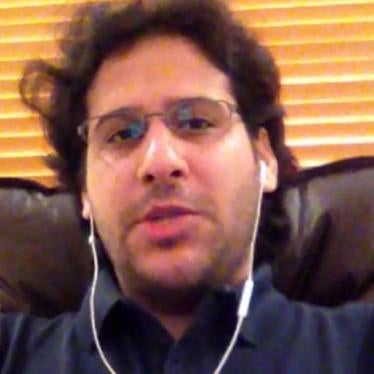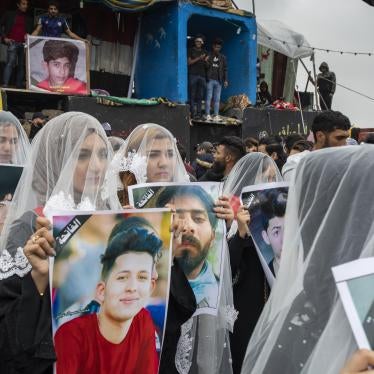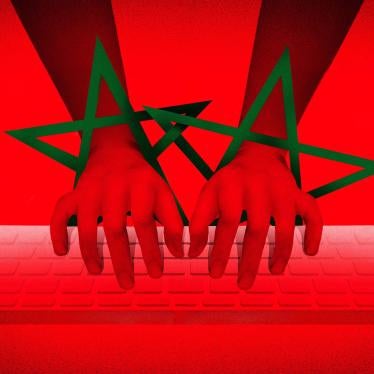(New York) - Syrian authorities should conduct an independent investigation into the shootings by security forces on March 21, 2010, that left at least one person dead and others wounded at a Kurdish New Year celebration in Northern Syria, Human Rights Watch said today.
The authorities also should grant families immediate access to wounded relatives who were transferred to hospitals in the towns of Raqqa and Aleppo, Human Rights Watch said.
"Syrian officials need to find out why a New Year celebration turned into a tragedy," said Joe Stork, Middle East deputy director at Human Rights Watch. "Those responsible for ordering forces to fire at the crowd with live ammunition should be brought to justice."
Kurds gathered in the open field area known as Matahen on the outskirts of Raqqa at about 9 a.m. on March 21 to celebrate Nowruz, the Kurdish New Year. The gathering was organized by the PYD (Hezb al-Ittihad al-Dimocrati), an unlicensed party closely affiliated with the Kurdistan Workers' Party (PKK) in Turkey.
Kurdish participants told Human Rights Watch that Syrian security forces and police, both in civilian clothes and military uniforms, were present in large numbers and asked the Kurds to remove Kurdish flags and pictures of Abdullah Ocalan, the leader of the PKK, who is detained in Turkey. The Kurds were told they would only be allowed to raise the Syrian flag and images of Syria's president, Bashar al-Assad.
When participants refused to comply, a fire truck sprayed the stage and the crowds with water in an effort to disperse them. People in the crowd started throwing stones toward the security forces who, said a participant who described the scene, started shooting in the air and shortly thereafter at the crowd. Syrian authorities have not issued an official statement on the incident.
According to Kurdish human rights groups, at least two people died; but the only confirmed death is of Muhammad Omar Haydar, a Kurdish youth. The shooting also wounded a number of participants, but their number and identities are not clear because the security forces have denied access to them in hospitals. According to unconfirmed reports by Kurdish sources, at least two, Muhammad Khalil and Muhammad Othman, both currently in a hospital in Aleppo, were critically wounded.
This is not the first time that Syrian forces have used lethal force to break up a Kurdish celebration. In March 2008, Syrian internal security forces opened fire on Kurds celebrating Nowruz in the town of Qamishli in northeastern Syria, killing three people and wounding five others. The authorities did not investigate that shooting incident.
"The only way to prevent repeated use of unnecessary force in policing demonstrations is to put an end to the prevalent impunity of security forces," Stork said.
In policing demonstrations, security forces should abide by the United Nations Basic Principles on the Use of Force and Firearms by Law Enforcement Officials, Human Rights Watch said. These international standards call on law enforcement officials to apply nonviolent means before resorting to the use of force, and then only use force in proportion to the seriousness of the offense. Security forces should use lethal force only when strictly necessary to protect lives.
Two participants in this year's Nowruz celebration told Human Rights Watch that while some youths threw stones at security forces, none of the youths were armed and no security officer was in mortal danger. Two cars belonging to the security forces and a fire truck were damaged, one participant said. Available photos from the aftermath of the demonstration show an abandoned red fire truck.
Immediately following the gathering and altercations, security forces arrested dozens of demonstrators and, Kurdish human rights activists said, the arrests continued on the following days. On March 23, 23 of those arrested, including 4 minors, were brought before the judiciary, on accusations of inciting sectarian strife, beating a public employee, and inciting rioting.
One of the minors was released while the others, Adnan Buzan Sulayman, Khalil Muhammad Ali, and Muhammad Asmar Abdo, remain detained in the Raqqa prison. Four of the 19 adults remain in detention. Human Rights Watch urged the Syrian authorities to reveal the names and whereabouts of the other detained Kurds.






